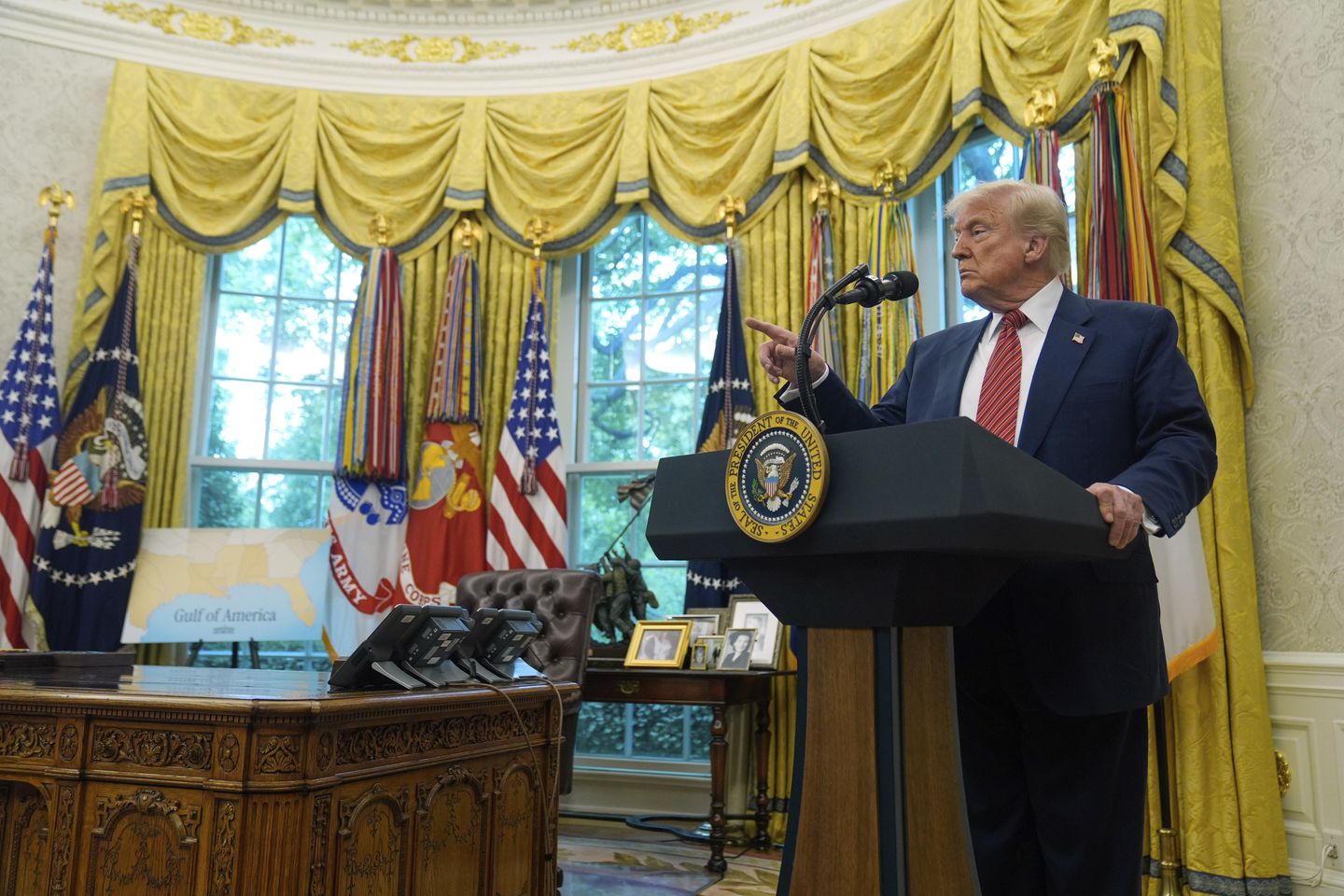
President Trump says an 80% tariff “seems right,” setting a potential guidepost ahead of weekend talks in Switzerland between the U.S. and Chinese sides.
The U.S. is imposing a 145% tariff on most Chinese imports, so Mr. Trump’s opening suggestion would be a drastic reduction but still a high levy.
“80% Tariff on China seems right! Up to Scott B.” Mr. Trump wrote Friday on Truth Social.
He is referring to Treasury Secretary Scott Bessent, who alongside U.S. Trade Representative Jamieson Greer will meet with China’s top trade officials in Geneva.
Mr. Trump on April 2 announced a blanket 10% on all imports and higher levies on countries that sell plenty of products to American consumers but don’t buy nearly as much from U.S. producers. Those heftier tariffs are on hold pending a 90-day freeze for negotiations. China is the exception, with tit-for-tat tariffs on both sides exceeding 100%.
Shipping across the Pacific Ocean is starting to slow down as the world’s two largest economies refuse to budge.
SEE ALSO: Treasury sanctions Chinese firms, ships for role in Iranian oil sales
Factory output in China is slowing down, while U.S. consumers could see fewer products or higher prices, if the costs of high tariffs are passed along to the checkout counter.
In his online posts, Mr. Trump said China’s market is too restrictive.
“CHINA SHOULD OPEN UP ITS MARKET TO USA — WOULD BE SO GOOD FOR THEM!!! CLOSED MARKETS DON’T WORK ANYMORE!!!” Mr. Trump wrote.
Mr. Trump also said “many trade deals are in the hopper,” which appeared to enthuse Wall Street. Stocks were up after the opening bell.
Mr. Trump is upset with trade imbalances across the world, saying countries tap into the rich U.S. market but don’t reciprocate by buying from American manufacturers.
The U.S. exported $143.5 billion in goods to China in 2024 while importing $438.9 billion from the Chinese, for a trade deficit of $295.4 billion, according to the U.S. Trade Representative.
Negotiating with China may be the toughest task for Mr. Trump’s trade team, even as it sees progress in negotiating down trade barriers in other countries.
The U.S. and U.K. announced a trade agreement in principle on Thursday that retains the 10% tariff on British goods but slashed tariffs on U.K. autos and its steel and aluminum.
American producers, particularly farmers, will get more access to the British market and U.K. companies will be able to supply critical parts to American companies like Boeing.












